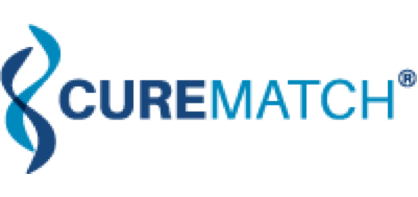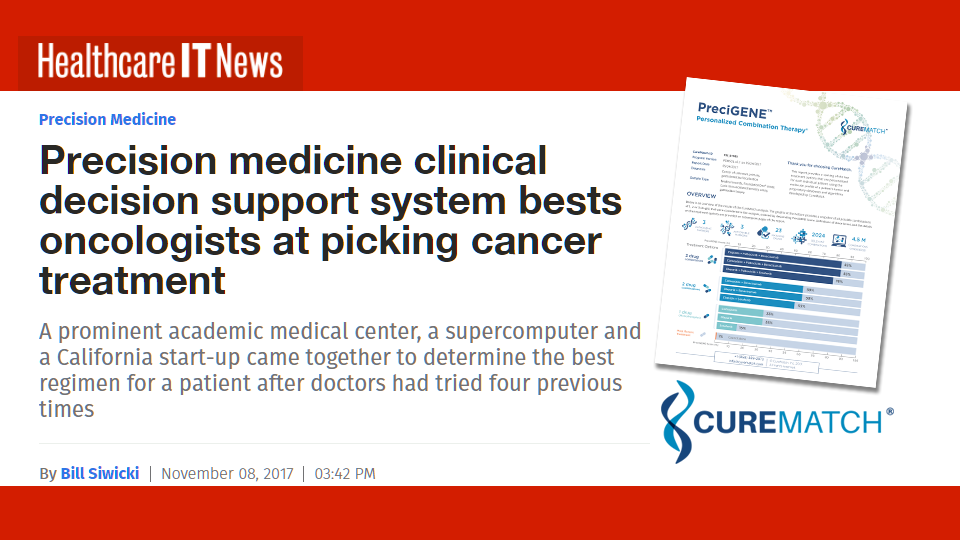HealthcareIT News Article Shows CureMatch Platform Helps Oncologists
A recent article in HealthcareIT News (Precision medicine clinical decision support system bests oncologists at picking cancer treatment) describes how CureMatch’s clinical decision support platform was used to aid oncologists in the selection of immunotherapy for a 57-year old patient. It explains how a therapy was selected by CureMatch following four previous failed treatment lines, which then led to near complete remission.
Here is an excerpt of this November 2017 HealthcareIT News article:
Precision medicine clinical decision support system bests oncologists at picking cancer treatment
The University of California San Diego Center for Personalized Cancer Therapy, working in conjunction with startup CureMatch and UCSD’s Supercomputer Center, claims that a precision medicine clinical decision support system provided treatment guidance for a patient after doctors were unsuccessful.
A 57-year old man, in fact, had undergone four previous lines of treatment. Despite surgery for several basal cell carcinomas, he developed brain, bone and liver metastases and was subsequently treated with two separate targeted therapies that are FDA-approved for metastatic basal cell carcinomas, but was non-responsive to these therapies. He also received Gamma knife radiation for brain metastases with good response, and chemotherapy was administered but that response was short-lived.
…
Those molecular diagnostic test results were then entered into the CureMatch platform, called nGENE, which was initiated at the UCSD Moores Cancer Center in collaboration with the UCSD Supercomputer Center. The system, in turn, generated a quality-controlled PreciGENE report ranking immunotherapy treatment options to guide clinicians.
CureMatch’s scoring system analyzed the individual patient’s molecular tumor profile and estimated the best therapeutic agents using proprietary algorithms and manually-curated databases, she added.
That personalized approach is when the new immunotherapy regimen began.
“After two months, scans showed remarkable partial remission with no toxicity noted,” Kurzrock said. “After 18 months the patient is in nearly complete remission.”
Read the complete article online here at HealthcareIT News

